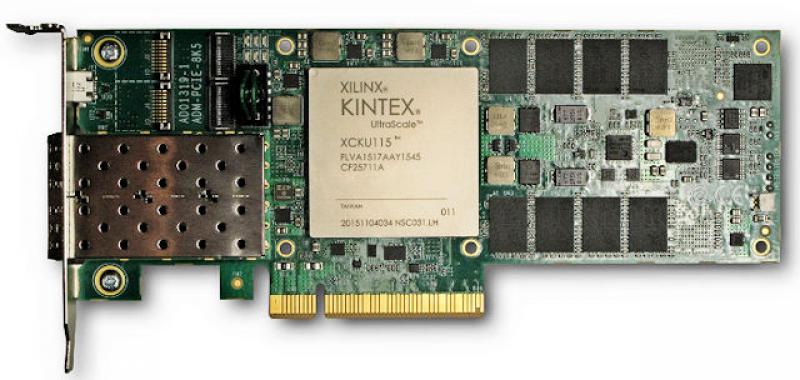FPGA Research & Development

With Exascale systems on the horizon at the same time that conventional von-Neumann architectures are suffering from rising power densities, we are facing an era with power, energy-efficiency, and cooling as first-class constraints concerns for scalable HPC. Unlike conventional CPUs, Field Programmable Gate Arrays (FPGAs) can tailor the hardware to software, avoiding overheads of general-purpose architectures–for example, through customized datapaths and memory architectures - and can thus achieve much higher energy efficiencies compared to conventional CPU- and GPU-based solutions. This has stimulated interest in their exploitation within power-hungry data centres, with recent benchmarks showing that FPGA-based application acceleration can achieve up to 25X better performance per watt and 50-75x performance improvement compared to CPU/GPU implementations.
Overview
ICHEC has recently established a research partnership with US semiconductor maker Xilinx, which will focus on enabling HPC and Big Data applications on Xilinx FPGAs. In particular, the partnership will focus on accelerating applications with power savings on FPGAs using the new Xilinx SDAccel(TM) development environment for OpenCL, C and C++ applications and on creating FPGA optimized libraries using Vivado High-Level Synthesis (HLS) technology. Working together with researchers at Xilinx’s EMEA headquarters in Dublin, ICHEC’s team of HPC application experts are enabling and optimising several important HPC and data processing algorithms on Xilinx FPGAs with a focus on both performance and energy efficiency. ICHEC is proud to be partnering with Xilinx on this project and look forwards to delivering exciting results together over the coming months.





